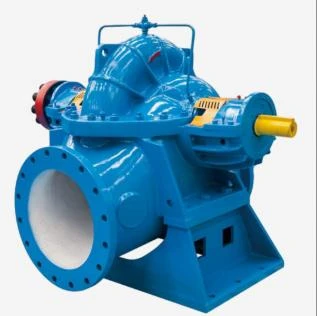English
- Afrikaans
- Albanian
- Amharic
- Arabic
- Armenian
- Azerbaijani
- Basque
- Belarusian
- Bengali
- Bosnian
- Bulgarian
- Catalan
- Cebuano
- Corsican
- Croatian
- Czech
- Danish
- Dutch
- English
- Esperanto
- Estonian
- Finnish
- French
- Frisian
- Galician
- Georgian
- German
- Greek
- Gujarati
- Haitian Creole
- hausa
- hawaiian
- Hebrew
- Hindi
- Miao
- Hungarian
- Icelandic
- igbo
- Indonesian
- irish
- Italian
- Japanese
- Javanese
- Kannada
- kazakh
- Khmer
- Rwandese
- Korean
- Kurdish
- Kyrgyz
- Lao
- Latin
- Latvian
- Lithuanian
- Luxembourgish
- Macedonian
- Malgashi
- Malay
- Malayalam
- Maltese
- Maori
- Marathi
- Mongolian
- Myanmar
- Nepali
- Norwegian
- Norwegian
- Occitan
- Pashto
- Persian
- Polish
- Portuguese
- Punjabi
- Romanian
- Russian
- Samoan
- Scottish Gaelic
- Serbian
- Sesotho
- Shona
- Sindhi
- Sinhala
- Slovak
- Slovenian
- Somali
- Spanish
- Sundanese
- Swahili
- Swedish
- Tagalog
- Tajik
- Tamil
- Tatar
- Telugu
- Thai
- Turkish
- Turkmen
- Ukrainian
- Urdu
- Uighur
- Uzbek
- Vietnamese
- Welsh
- Bantu
- Yiddish
- Yoruba
- Zulu
Telephone: +86 13120555503
Email: frank@cypump.com
Dec . 11, 2024 00:57 Back to list
Efficient Non-Clog Submersible Sewage Pumps for Reliable Wastewater Management Solutions
The Advantages of Submersible Non-Clog Sewage Pumps
In modern waste management systems, the effective handling of sewage and wastewater is crucial for public health and environmental sustainability. Among the various technologies used for this purpose, submersible non-clog sewage pumps stand out as an efficient and reliable solution. These pumps are designed specifically to handle the challenging conditions commonly encountered in sewage systems, making them an essential component in both residential and commercial wastewater management.
Understanding Submersible Non-Clog Sewage Pumps
Submersible non-clog sewage pumps are engineered to operate underwater, making them particularly useful in submerged applications such as sewage lift stations and wastewater treatment facilities. Unlike traditional sewage pumps that might get clogged with debris, these pumps feature unique designs that prevent blockages. This is primarily achieved through their impellers, which are constructed to handle solids and fibrous materials without jamming. The non-clogging design ensures continuous operation even in the presence of challenging materials.
Key Benefits
1. Efficiency and Reliability One of the most significant advantages of submersible non-clog sewage pumps is their efficiency. Because they operate below the surface of the waste, they avoid problems related to surface agitation and can effectively manage higher volumes of wastewater. Their reliability is further enhanced by robust construction materials, designed to resist corrosion from aggressive sewage compounds.
2. Space-Saving Design Submersible pumps are compact and take up less space compared to traditional above-ground models. This is particularly beneficial in sites with limited space, such as residential areas or urban environments. The design allows for easy installation in pits or confined areas, minimizing the footprint of wastewater management installations.
submersible non-clog sewage pump

3. Energy Efficiency Many modern submersible non-clog sewage pumps are designed with energy efficiency in mind. They often feature variable speed drives or other energy-saving technologies that allow them to adjust to real-time flow conditions. This not only reduces energy consumption but also lowers operational costs, making them a cost-effective choice in the long run.
4. Reduced Noise Pollution By being submerged under water, these pumps significantly reduce noise levels compared to their above-ground counterparts. This makes them suitable for use in residential or noise-sensitive areas, contributing to a quieter environment.
5. Versatile Applications Submersible non-clog sewage pumps are versatile and can be used in a wide range of applications. They are ideal for municipal sewage systems, industrial waste applications, and even in construction sites where groundwater needs to be pumped out. Their ability to handle various types of waste makes them a practical choice across different industries.
6. Easy Maintenance Although submersible pumps are designed for durability, they require periodic maintenance to ensure optimal performance. Fortunately, many models are designed for easy access and maintenance, allowing for quick inspections and repairs. This reduces downtime and enhances the longevity of the pump.
Conclusion
As urban areas continue to grow and the demand for efficient waste management solutions increases, submersible non-clog sewage pumps will remain a critical technology in the field. Their combination of reliability, efficiency, and versatility makes them well-suited for the challenging environment of sewage systems. Investing in submersible non-clog sewage pumps not only improves waste management practices but also contributes to cleaner and healthier communities. By choosing the right pump for the specific application, industry professionals can ensure that sewage and wastewater are handled effectively, safeguarding public health and the environment for generations to come.
-
ISG Series Vertical Pipeline Pump - Chi Yuan Pumps Co., LTD.|High Efficiency, Energy Saving, Low Noise
NewsJul.30,2025
-
ISG Series Vertical Pipeline Pump- Chi Yuan Pumps|High Efficiency&Low Noise
NewsJul.30,2025
-
ISG Series Vertical Pipeline Pump-Chi Yuan Pumps Co., LTD.|High Efficiency&Energy Conservation
NewsJul.30,2025
-
ISG Series Vertical Pipeline Pump - Chi Yuan Pumps Co., LTD.|Advanced Hydraulic Design&Energy-Efficient Solutions
NewsJul.30,2025
-
ISG Series Vertical Pipeline Pump - Chi Yuan Pumps Co., LTD.
NewsJul.30,2025
-
ISG Series Vertical Pipeline Pump - Chi Yuan Pumps Co., LTD.|energy-efficient fluid handling&industrial durability
NewsJul.30,2025










